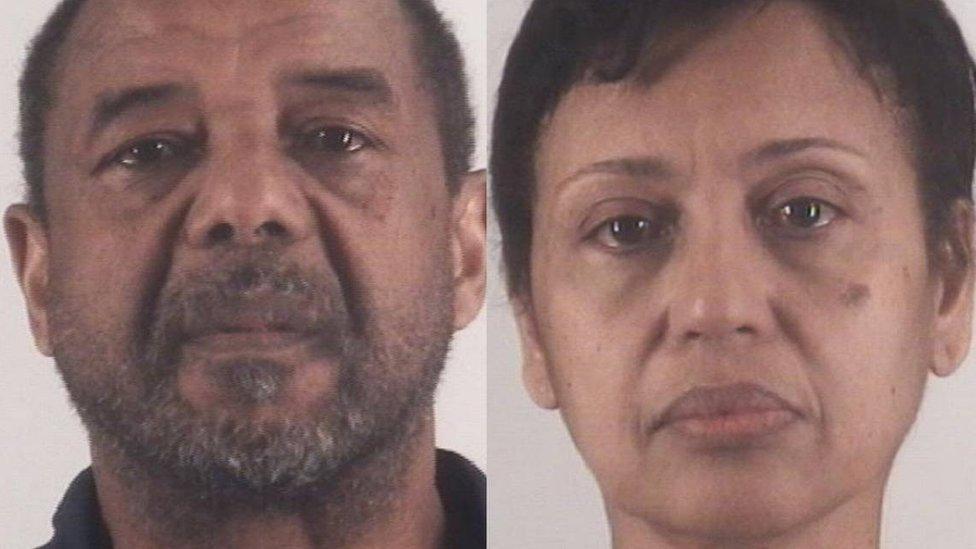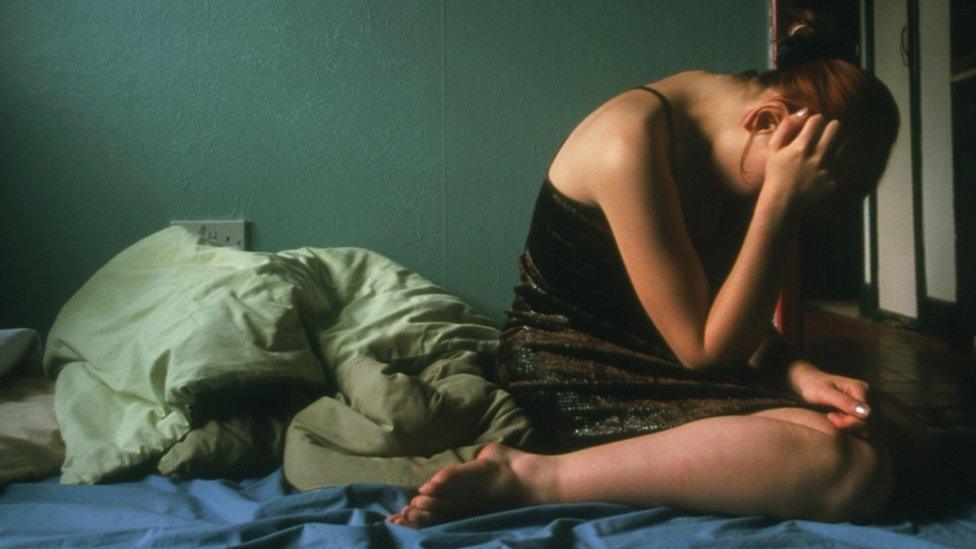Guinea founder's son 'enslaved girl in Texas for 16 years'
- Published

Mohamed and Denise Touré emotionally and physically abused the girl, investigators say
The son of Guinea's first president Ahmed Sékou Touré has been accused of enslaving a young woman for 16 years at his home in the US.
Mohamed Touré and his wife Denise Cros-Touré, both 57, reportedly brought the girl from Guinea to Texas when she was five years old.
She eventually managed to escape with the help of neighbours.
The couple have been charged with forced labour. If convicted, they face up to 20 years in prison.
Mohamed Touré is the current secretary general of the Democratic Party of Guinea (DPG), which was founded by his father.
He and his wife forced the girl to do housework and look after their children, and also subjected her to emotional and physical abuse, the US Department of Justice said in a press release.
They denied her access to schooling, confiscated her travel documents and forced her to remain in the US after her visa expired, external, the statement said.
A federal court in Fort Worth heard she slept on the floor and was beaten by Mrs Touré with a belt and electric cables.
'Fabrications and lies'
She would also be shouted at or kicked out of the house without money, identification or the ability to communicate in English.
On one occasion, she was discovered sleeping on a bench by a police officer, external, who described her as "wearing dirty unkempt clothing" and "very visibly scared and nervous", in a police report, the Washington Post reported.
The officer returned her to the Touré residence, the newspaper says, suspecting she was a runaway.
She is said to have finally escaped from the house in Southlake in August 2016 "with the help of several former neighbours", the Department of Justice statement adds.
The couple's lawyer denied all of the allegations, the Washington Post said.
Scott Palmer told the newspaper they were "salacious allegations, fabrications, and lies". He added that the woman was treated like a daughter.
The DPG was the only legal political force in Guinea during Mr Sékou Touré's 26 years in power from independence until 1984.
- Published17 January 2018

- Published10 August 2017
